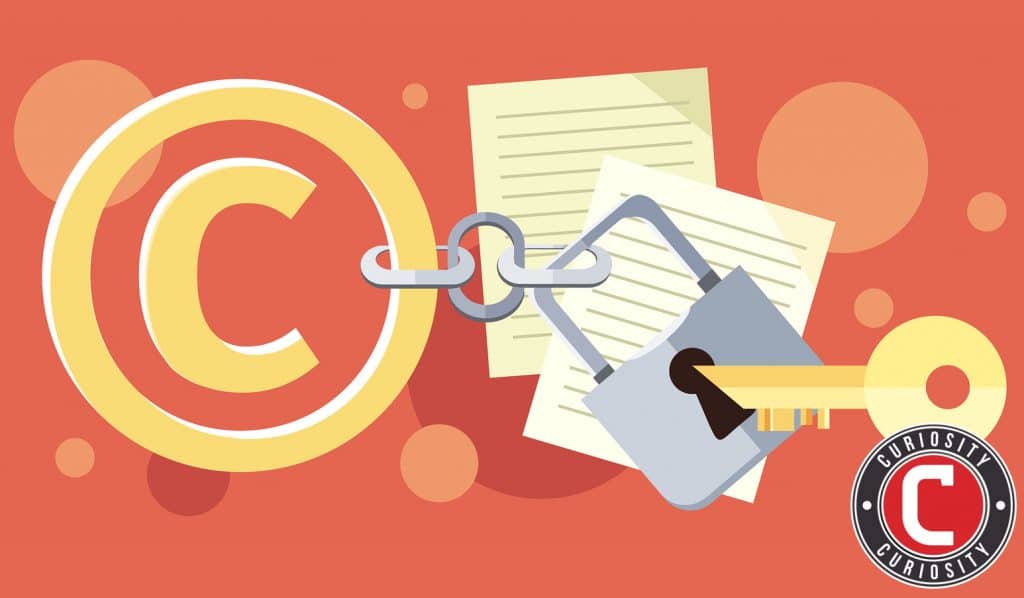Protecting your intellectual property is something that you may not often think about. As business owners, we are often also content creators. We have blog posts, articles, books, videos, podcasts, seminars, and more. So much of what we do revolves around creating content to reach out and connect with our audience and clients.
Protecting that content should be high on our list, but it often gets glossed over due to its technical nature. Things like copyrighting and IP laws can be difficult to mentally wrangle, even for professionals. So, let’s skip it, skim over the law-heavy, jargon-filled sections of this talk, and get down to the nitty-gritty: why do you need to be protecting your intellectual property?
This isn’t a question that’s simple to answer. Sure, I could just say, “You need to protect your content so it isn’t stolen,” but there’s so much more to it than that. So, to make it as easy as possible, I’ve chosen to split this article up into the top five reasons you need to be protecting your intellectual property.
Everybody should be digging in to this topic. It’s something that, as content creators and business owners, we all need to know something about. If you’re ready to learn more, listen to the episode of the Traffic & Leads podcast with Melissa Tucker, of Intellectual Property HQ.
Don’t be put off or daunted by the subject matter. I’ll be keeping things as simple as possible so we can all be on the same page about content theft and what you can do about it. In no particular order, here are the reasons that you should be focusing on protecting your intellectual property.

Reason #1 to Be Protecting Your Intellectual Property: It Isn’t a Matter of “If”, But “When”
If you create original content, it’s only a matter of time before that content is stolen. As time passes, your website will become more and more visible. Your distributed content will be spread widely. More people will want to get a hold of your workshop materials. Things will continue escalating.
Protecting your intellectual property has to be a priority before your brand becomes widely noticed and recognizable. The more known you become, the more at risk you are. Don’t take that as a sign that, as a small business owner, you’re safe. Far from it, sadly.
By the time your content IS stolen, it may be too late to do anything about it. Copyright, trademark, and patent enforcement is hard to pursue when you aren’t even sure how to go about protecting your intellectual property.
Simply asking someone to take down or cease distributing content that is clearly yours often doesn’t do much. If there’s no way for you to legally back up your claim, content thieves—often referred to as “pirates”—won’t see a good reason to stop their actions.
This is absolutely the #1 reason why you need to start looking into how to protect your content. The follow-up podcast episode with Melissa Tucker’s husband, Jason Tucker, digs even deeper into the hows of IP protection, so be sure to check that out sooner rather than later.
Reason #2 to Be Protecting Your Intellectual Property: Theft Can Contribute to Loss of Revenue
How can you lose sales, revenue, and website attention simply via content theft? In order to understand how a stranger can profit off of your content, you have to understand about the growing underground market for stolen content.
Pirates will locate content that they think will interest their own audience–people who want a product, but either can’t afford it at normal price, or aren’t willing to pay full price for it. They then hone in on business, companies, and/or content producers that align with these interests. They might buy the content at full price, or they might simply snag something like an article or blog post by copying it off of your website. They then post this content on their site and sell it for half the price you’re selling it at. They may even charge people for content that is free on your site, by tricking their customers into believing they’d have to pay more for it elsewhere.
With your content being sold elsewhere, you won’t be able to make a living off of the material you’ve poured your heart and soul into. Not only that, but these pirates draw visitors away from your website with the promise of “cheap goods”.
I can imagine you’re starting to see why protecting your intellectual property is so pivotal. Not only is it a risk to your content, but a risk to your income.
Reason #3 to Be Protecting Your Intellectual Property: Loss of Personal Image and Integrity
Let’s say that you’ve addressed all the previous points I’ve made, and they still haven’t had much of an impact. You don’t mind a loss of revenue (or the loss seems so small as to not be worth it). You aren’t too worried about your content being stolen and won’t mind much if it is. Protecting your intellectual property isn’t too much of a worry for you. After all, what does someone like you have to lose?
Now imagine this: a potential client is browsing your website, and they see an original article of yours. They Google the title to see if they can find similar information, and they find an EXACT replica of your article on another website. Word-for-word, the same article.
What is it that they’re going to think? Who are they going to trust? It’s a 50/50 split as to whether or not they decide to trust you or the people hosting your stolen article. There’s also the chance that they’ll won’t take any of the information seriously and will just back away from both sites, never to return.
Protecting your intellectual property is more than just about protecting the content; it’s about preserving your integrity. If a simple Google search shows your content hosted on another—or several other!—sites, visitors will just assume you’re all copying the same article from some original, credible source. They may rarely trust that the article was originally yours. After all, what proof is there?
Reason #4 to Be Protecting Your Intellectual Property: Your Product/Service Becomes Useless
Let’s use another analogy to point out how by not protecting your intellectual property, your service or content can simply be rendered useless.
We’ve already discussed the concept of the black market for selling stolen content. Under usual circumstances, 100% of the people who are interested in what you have to say would go to you for this content.
When your material is being uploaded, posted, or sold elsewhere, suddenly your audience may start to disappear. Maybe it will start with 80% of your audience sticking around, and those numbers will slowly dwindle as your ideas are stolen and repackaged. 75%… 50%… 25%… the numbers may bottom out at a certain point, or you may simple lose your audience altogether.
Frankly, it’s a horrifying thought, but your stolen content may end up not only de-legitimizing your business but making it obsolete. Your once original ideas will be dispersed, and others will integrate it seamlessly into their model without so much as thinking about the originator.
This is a genuinely morbid thought, so I won’t stick on it for too long. Just know that it’s entirely possible for a business to crumble due to pirates.
Reason #5 to Be Protecting Your Intellectual Property: It’s Easy
A lot of this article has been about the negatives–the big, sometimes frightening reasons why we all should be looking into protecting our intellectual property. While fear is a fantastic motivator, I want to leave us all off on a positive note: getting your content protected might not be as difficult as you think it is.
While I’ve promised not to get too deep into the technical, law-driven side of things, I CAN tell you that copyrighting your content takes about 15 minutes and only $55. You can do this with USCO–the United States Copyright Office. Register your content with them, and it’ll be the first step in protecting your work. It won’t stop thieves from stealing your content, but it WILL give you rights to pursue legal action!
Protecting your intellectual property shouldn’t be an afterthought. It should be a critical part of your content creation process. When you create original content, you should feel safe when you go to post or host it. Make sure you can sleep easily at night—protect your IP!

